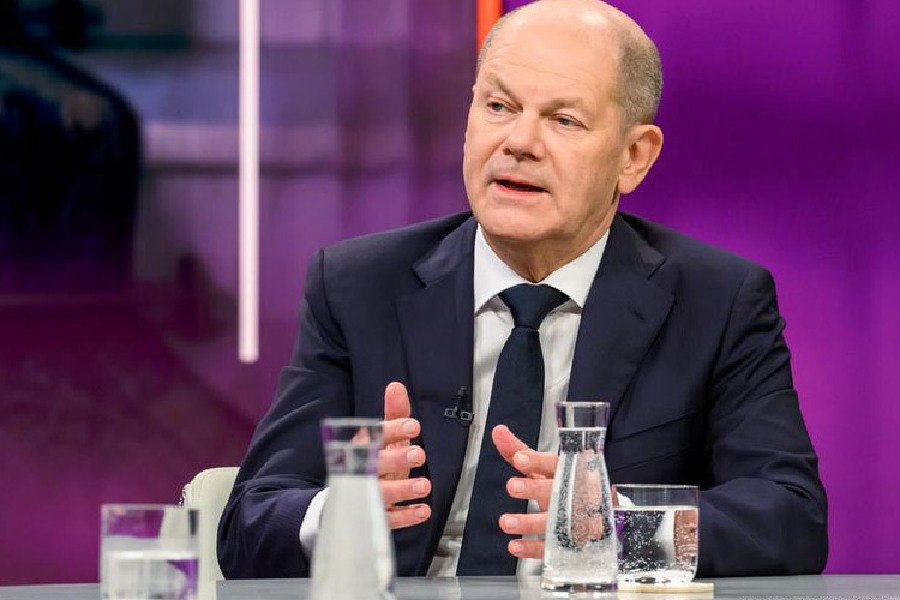Germany plans to slash social benefits and rein in government debt but increase the amount spent on the military in 2024, according to a federal budget approved on Wednesday by the government of Chancellor Olaf Scholz.
The proposed package foresees spending €445.7 billion euros next year, down about 6 per cent from this year, while taking on just €16.6 billion in fresh debt, a considerable cut of more than 50 per cent. Next year’s budget will be the first to return to the cap on borrowing imposed by the country’s constitution since it was suspended at the outset of the coronavirus pandemic.
Staying within that limit meant slashing spending over the next two years, for all sectors except the military. Funds earmarked for defence would help Germany reach its obligation as a Nato member to spend at least 2 per cent of gross domestic product on its military next year.
Christian Lindner, Germany’s finance minister, presented the budget as a return to the fiscal austerity for which his country is known, but critics charged that the insistence on steep cuts outside the military would limit Germany’s ability to remain a globally competitive industrial power.
Despite intense pressure from the US, Germany last spent 2 per cent of its GDP on defence in 1991, a year after the reunification of the former East and West German nations, according to statistics from the World Bank.
But some argued that by refusing to significantly raise the military budget, which increased €1.7 billion, to €51.8 billion, opting instead to pad it with €19.2 billion from a special fund.
At the same time, the severity of the cuts to social services drew sharp criticism from economists, unionists and welfare providers. The budget included cuts to a plan to help alleviate child poverty and a large reduction to the allowed annual income for new parents to qualify for government-paid parental leave.
Marcel Fratzscher, president of the German Institute for Economic Research, called the budget “economically unwise, antisocial and unstrategic”.
New York Times News Service










